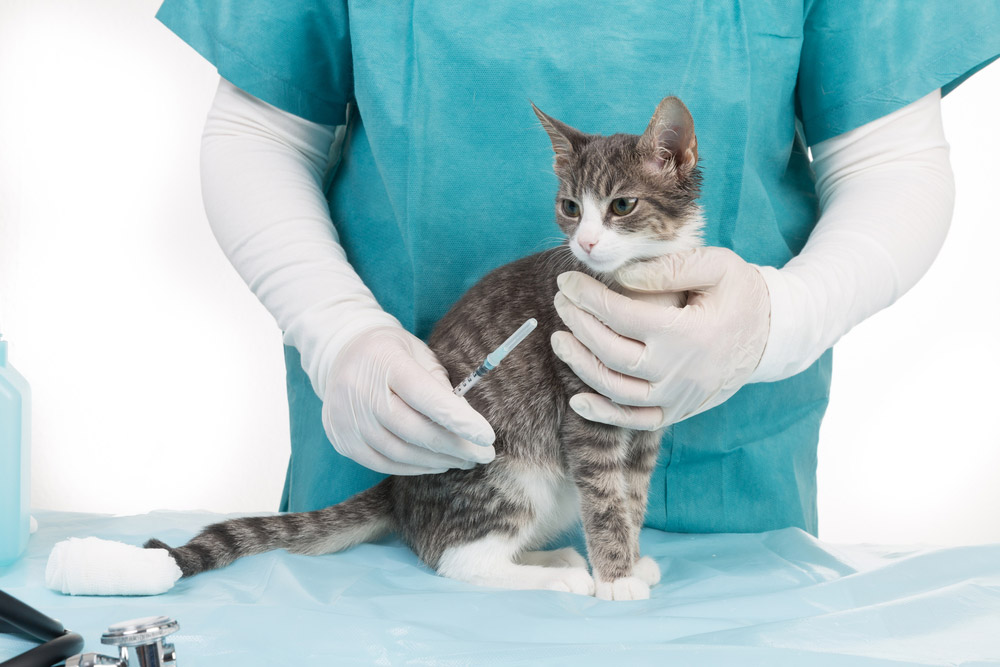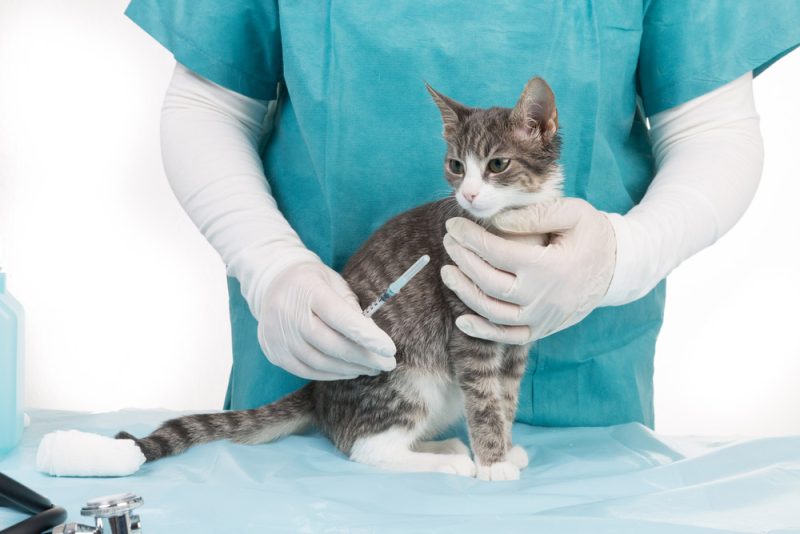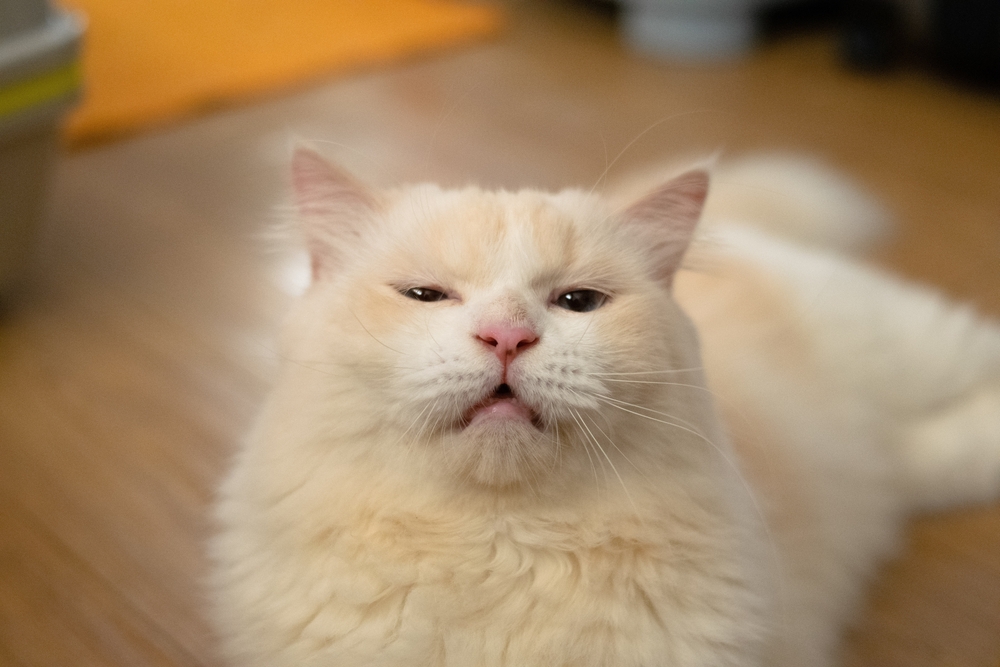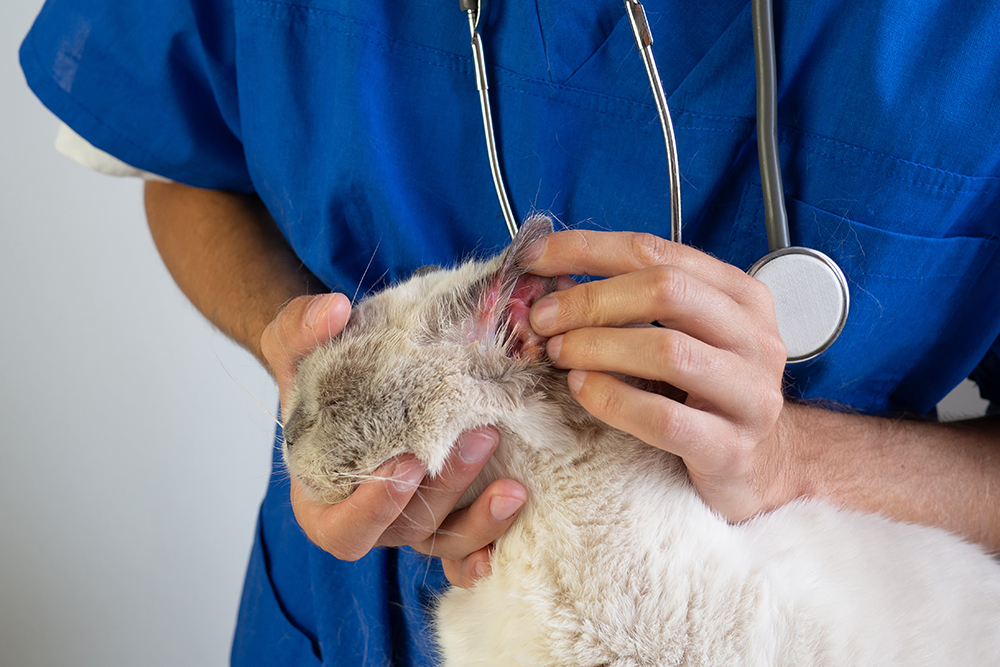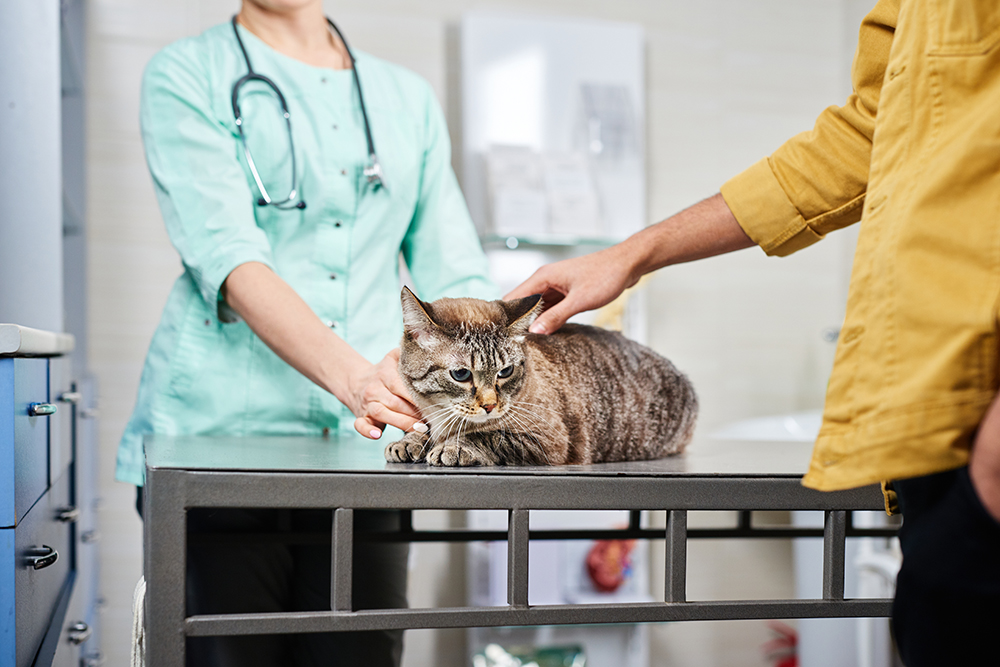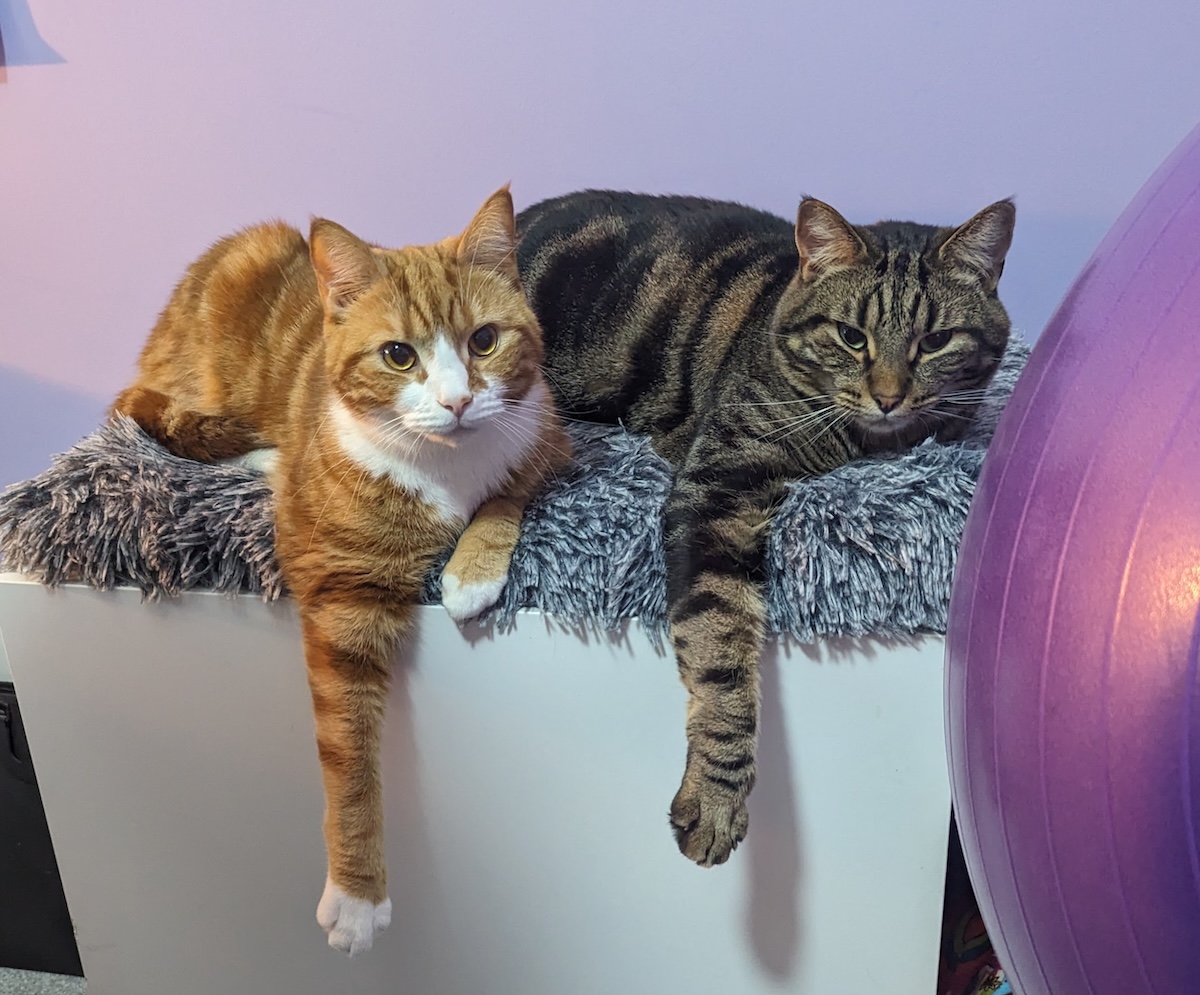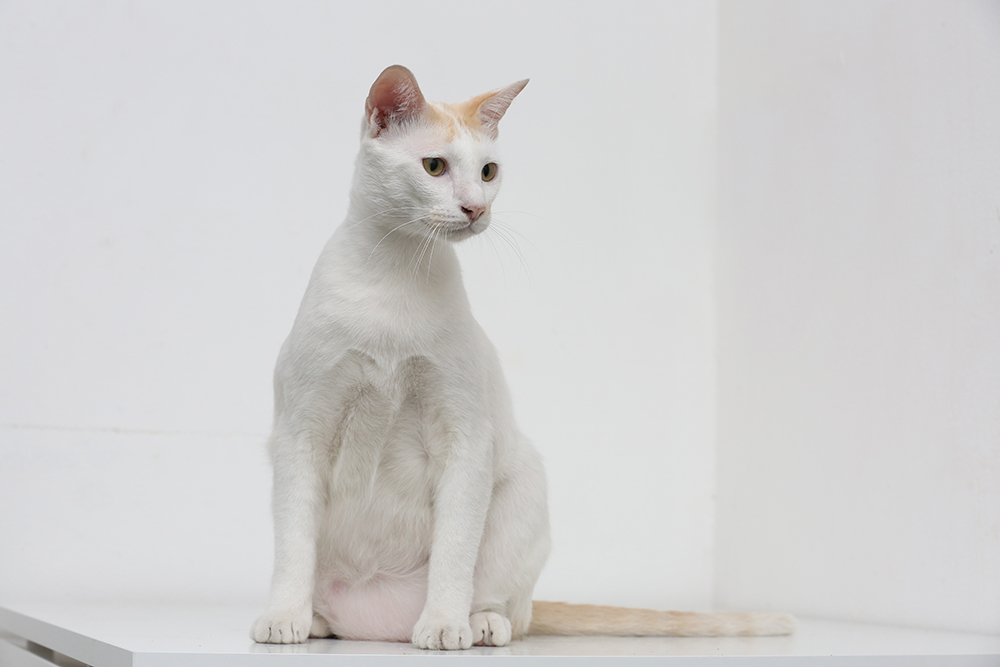Click to Skip Ahead
As a cat parent, you’ve likely heard about feline immunodeficiency virus (FIV) at some point in your life. Feline immunodeficiency virus is a retrovirus that can eventually lead to immune compromise in affected cats. Some affected cats can live full, healthy lives, whereas others succumb to their illness, and can develop AIDS. Care to limit exposure to potential infectious agents is critical for cats with FIV, but what about vaccinations? Can potentially immune-compromised individuals benefit from vaccines? Will a vaccine successfully amount to an efficient immune response in FIV+ cats?
Unfortunately, the answers to these questions are not straightforward. Vaccination of an FIV+ cat will be dependent on several factors, and not all clinicians share the same opinion on this topic. Continue reading below to understand more about vaccinating the FIV+ cat.
What Is FIV?
FIV is a virus that can result in a compromised immune system. Not all cats with FIV will have ongoing problems with their immune system. In fact, some cats diagnosed with FIV can live completely normal lives and never succumb to the virus. Unfortunately, the progression of FIV is not predictable. Some cats may quietly develop changes to their immune system, leaving them more susceptible to infections.
FIV is transmitted through saliva and is most often transmitted secondary to fighting, although transmission can occur in utero and through cohabitation behaviors, like grooming and sharing of bowls.
Meanwhile, end-stage FIV, often referred to as AIDS, causes depletion of white blood cells and sometimes even cancer.
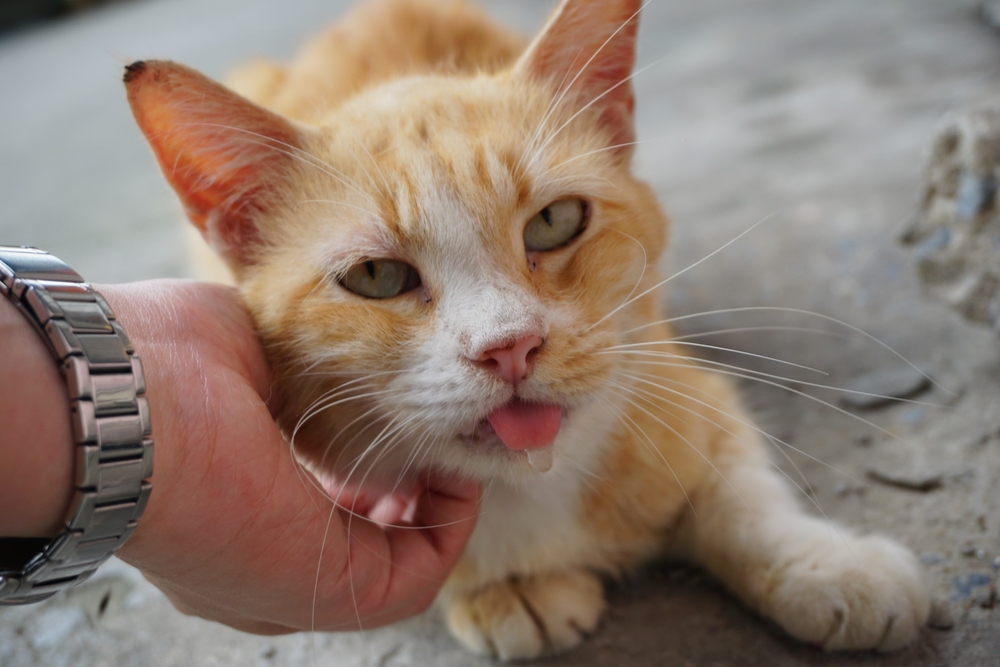
To Vaccinate or Not to Vaccinate?
Vaccinations are designed to help protect against infectious agents. An immune-compromised individual may benefit from protection achieved through vaccination more so than an immune-competent patient. Keep in mind, however, that vaccinations are not all the same, and recommendations may vary between patients.
There are different types of vaccinations (modified-live vs. inactivated), and a general consensus has not been made as to which type of vaccine is best for FIV+ patients. However, some clinicians prefer the use of inactivated vaccines when possible.
The level of immune compromise must be taken into consideration when determining if a vaccine should be administered, along with risks and local laws. If your FIV+ companion is showing signs of the terminal stage of infection, it may not be appropriate to vaccinate them due to their inability to amount and immune response.
Furthermore, other clinicians may recommend solely administering vaccinations required by law to affected cats if they live in a low-risk environment. “Low risk” means no other cats are being introduced into the household, that the cat is kept strictly indoors, and that high-traffic areas like boarding facilities and groomers aren’t utilized. If the FIV-infected patient does have to be in a high-risk scenario, like boarding, it may be safest to administer the protective vaccinations.
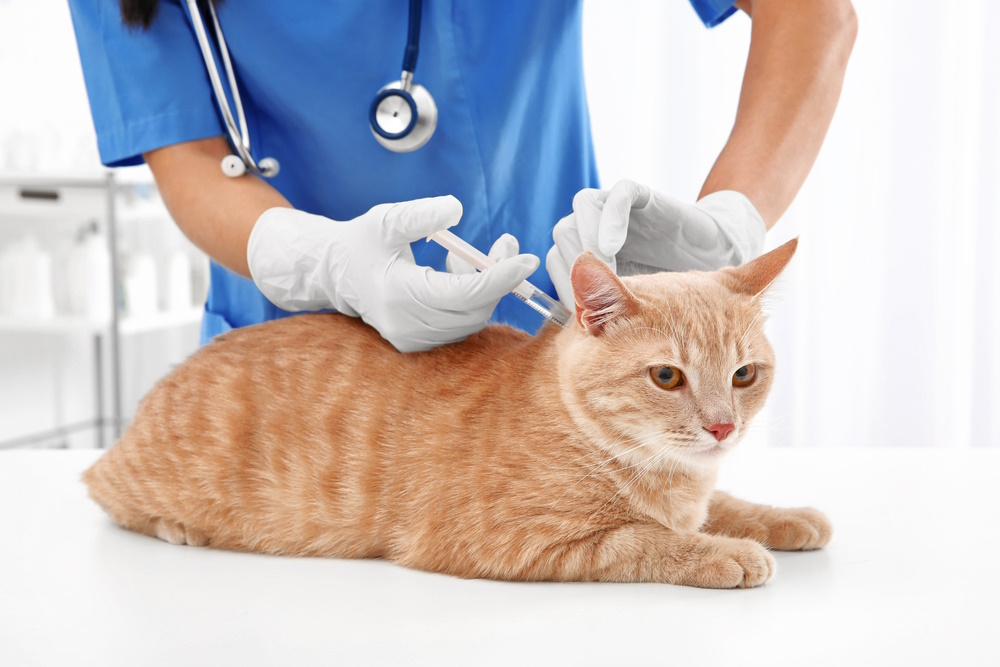
What Vaccines Should Be Considered?
The rabies vaccination should be considered and administered where it is required by law. Additionally, depending on the risk factors, the combination vaccination protecting against feline viral rhinotracheitis, calicivirus, and panleukopenia could be administered.
FELV (feline leukemia) is an elective vaccination and should be considered in patients who have a risk of exposure. Risk of exposure may include sharing the household with a cat who has access outdoors or who has FELV.
With all that said, the FIV vaccination is not recommended in cats and isn’t available for vaccination in the United States.
When available, inactivated vaccines may be preferred in the FIV+ cat. However, there are no firm recommendations at this time.
What Else Can Be Done to Protect My FIV+ Cat?
Lifestyle changes are necessary if you own a FIV+ cat. Firstly, your cat should be fixed to minimize the risk of transmission to kittens if they are healthy enough to undergo the procedure. Additionally, FIV+ cats should be kept indoors whenever possible to not expose other cats to the virus, which often occurs through fighting. An indoor cat is also less likely to come into contact with other infectious agents that could be harmful to an immune-compromised individual.
Furthermore, it is important to maintain your cat on a high-quality diet and to keep up with routine veterinary visits. Raw diets should be avoided. Careful consideration should be made prior to introducing another cat into your home, as they may harbor contagious illnesses that might detrimentally impact your cat, or your FIV+ cat could potentially transmit the virus to the uninfected housemate.
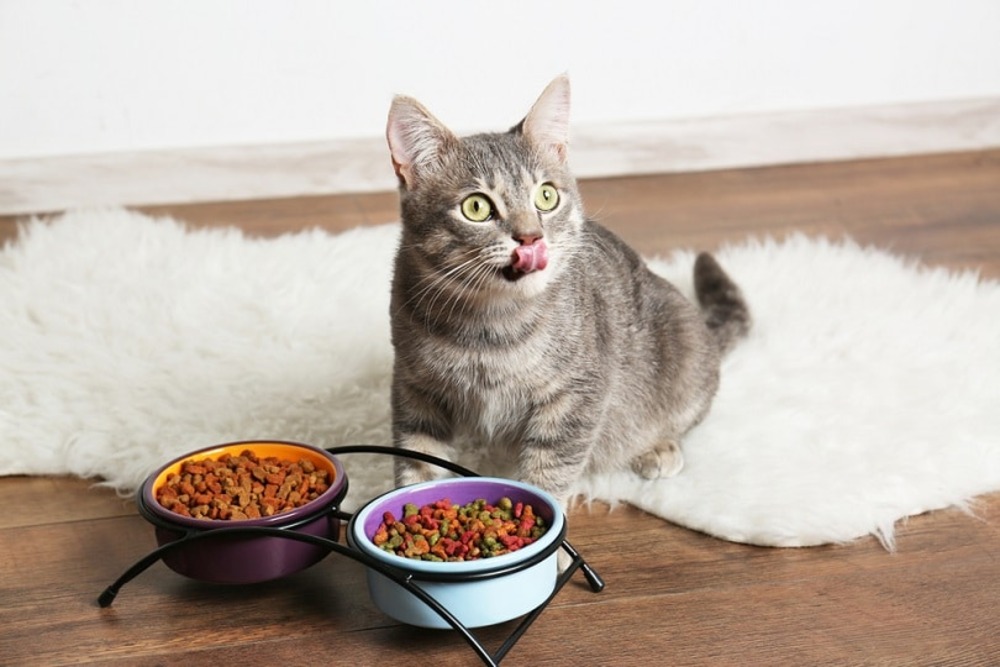
In Summary
Vaccination recommendations for FIV+ cats are not clear. There are different viewpoints on the topic, and a specific vaccine protocol has not been established. It is important to consider each patient individually when considering which vaccinations should be administered. Be sure to discuss any questions or concerns you may have regarding vaccination with your veterinarian.
Featured Image Credit: bmf-foto.de, Shutterstock

